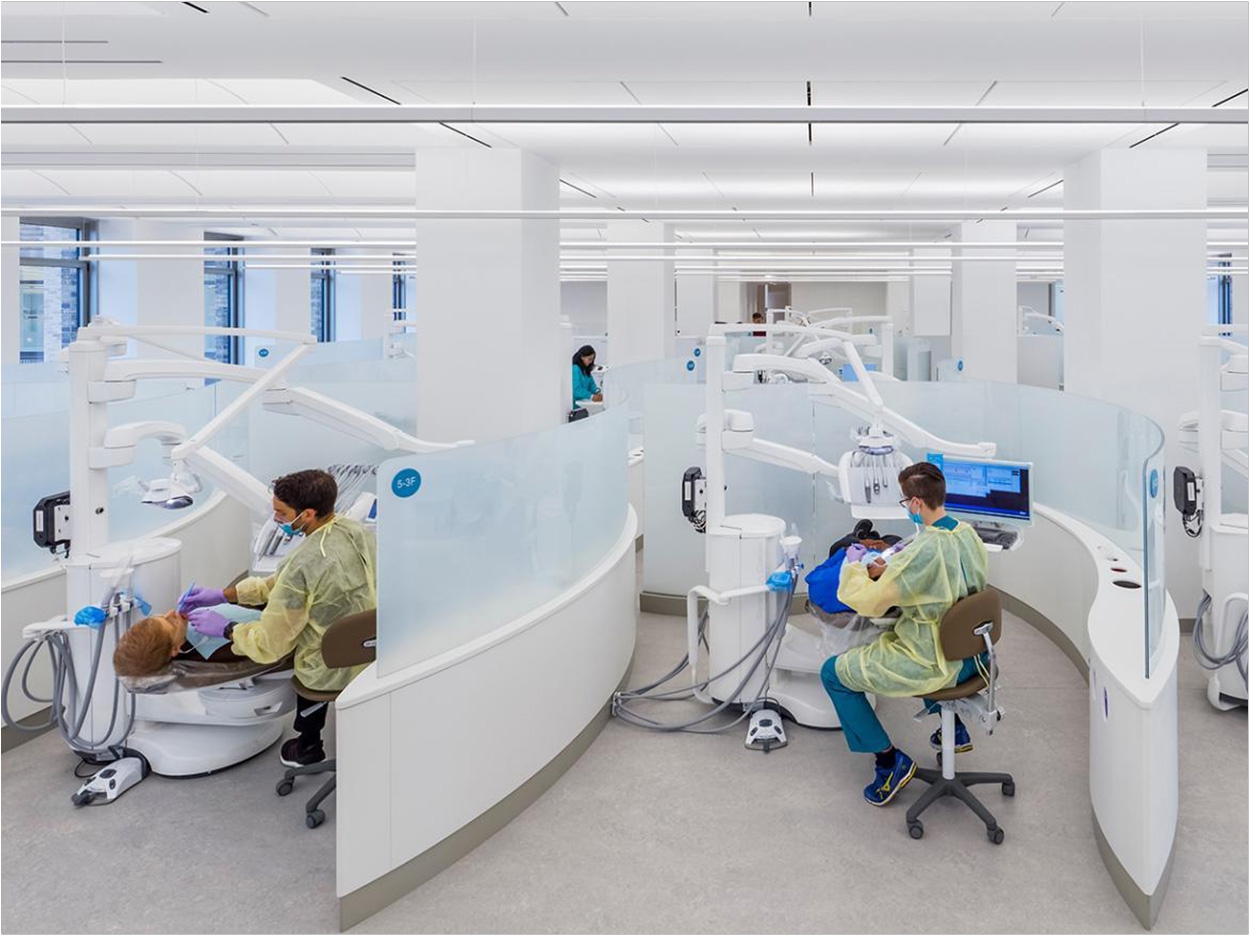
In precision medicine, data is used to tailor treatment to each individual patient. Now, the Center for Precision Dental Medicine at the Columbia University College of Dental Medicine brings this model to oral health. The suite comprises 48 operatories designed to stretch the boundaries of dentistry.
Passive data collection tools enable personnel at the center to craft care to each patient and offer quantifiable feedback to each student. By linking electronic dental records with health records, dentists and other providers can treat patients based on comprehensive health information rather than just oral disease. The center also will facilitate research that could help dentists treat patients based on thousands of parameters rather than the handful used today.
“The College of Dental Medicine was founded 100 years ago with a disruptive idea that dentistry should be taught and practiced within the context of the whole body,” said College of Dental Medicine dean Christian S. Stohler, DMD, DrMedDent. “The Center for Precision Dental Medicine gives us the capacity to realize this founding vision in the information age.”
In partnership with Planmeca, the college developed first-of-its-kind dental instruments designed to quantify clinical instruction and aggregate enough human data to help detect signs of chronic disease from the patient’s first dental visit.
For example, radio-frequency identification (RFID) tags are attached to dental instruments, supplies, and student and faculty ID badges to collect never-before-measured data such as in what angle, for how long, and during what procedure an instrument was held. The feedback that instructors can provide is now measurable for greater precision and efficiency in the care that students provide.
Also, dental chairs now act as data collection hubs. Two video cameras at each chair allow instructors to view procedures as they occur from the student’s point of view and then provide specific feedback on procedures. The dental chair developed for Columbia additionally collects data that determines a patient’s stress levels to provide real-time information about how at-ease a patient is.
Deep data mining will support oral precision as well. All the information gathered through these and other new technologies will provide anonymous patient and user data for bioinformatics information to offer personalized care and to make evidence-based connections between oral and overall health.
“This center is truly going to disrupt dentistry,” said Jeannette Wing, PhD, the Avanessians Director of the Columbia University Data Science Institute. “Through this new technology and data scientists’ use of machine learning, we can find answers to questions like, ‘Are we making the most efficient use of our equipment? How can we make patients more comfortable? What procedure will produce the strongest outcomes for patients?’”
Related Articles
Columbia University Brings Data Science to Dental School
Researchers Identify Genes That Cause Periodontal Disease
Precision Medicine Overcomes Painful TMD Treatment












